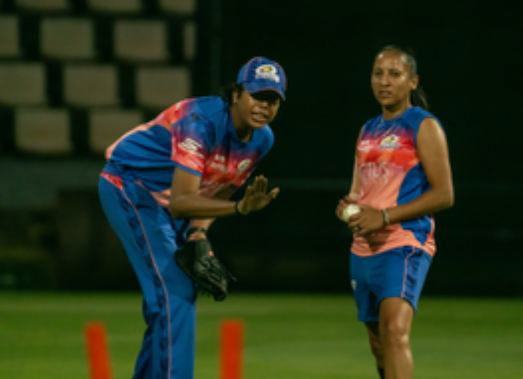Sports
Jhulan Goswami bats for franchise leagues for women's cricket growth

New Delhi, Aug 14
Jhulan Goswami, the former India fast bowler and the highest wicket-taker in women’s ODIs, stated that franchise cricket is the way of the future for women's cricket and advocated for giving each franchise league priority.
Jhulan believes the rapid growth of T20 leagues such as the WPL, Women’s Big Bash League (WBBL), The Hundred, and the Women’s Caribbean Premier League (WCPL) has intensified the debate of club versus country in women’s cricket. She argued that these leagues are vital for the sport’s global growth and should be prioritised over bilateral series.
"Earlier, we saw these things happen for men's cricket but never expected it to happen for women's cricket, but that's happening. And I'm happy to see that. The ICC needs to take care, franchise cricket is the future of women's cricket. And that's the growth of women's cricket globally. You have to give priority to every franchise league; otherwise, cricket will not grow," Jhulan said on said on ESPNcricinfo's Powerplay podcast.
Jhulan, who is a bowling coach and mentor for the Mumbai Indians in the Women’s Premier League (WPL), delved into the ongoing calendar clashes between franchise leagues and bilateral series and termed it a "big challenge for women's cricket".
The impact of these scheduling conflicts was felt earlier this year when England’s tour of New Zealand clashed with the WPL. England captain Heather Knight chose to prioritise national duty over playing for Royal Challengers Bangalore in the WPL. Other players, like Lauren Bell and those participating in the Asia Cup, also had to make tough choices, further highlighting the growing tension between national and club commitments.
"See how many quality cricketers were produced by franchise cricket in the last few years, starting with the WBBL as well as the Hundred, WCPL, WPL. A lot of youngsters they've provided every year so you have to give priority to those windows and after that you have to have bilateral series. If you have your bilateral series and franchise leagues clashing, then you will lose out on quality cricketers," Goswami said.
She believes that the solution lies in carefully crafting the cricket calendar to allow both franchise leagues and bilateral series to flourish without compromising the quality of either.
"And if you don't have quality cricketers, then your tournament is not going to be successful. In women's cricket we don't have a lot of options, a few quality cricketers we have in the world. If they're occupied in bilateral series, then the volume of the (T20) tournaments is going to go down.
"We should make sure that when the premier league (franchise) tournaments are going on, give them certain windows and after that you have the bilateral series. It will help women's cricket's growth also. That is my personal view."

















































